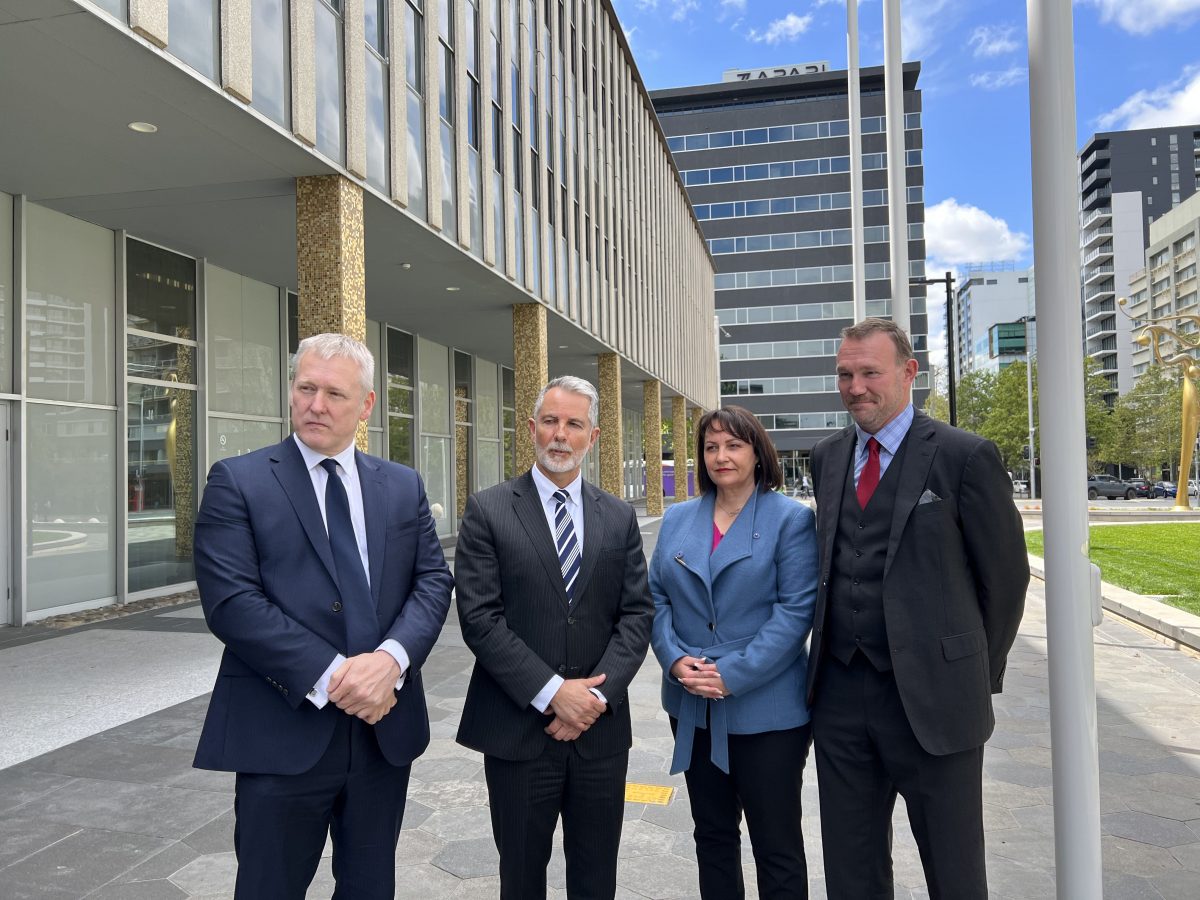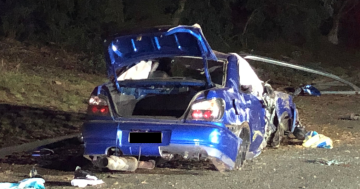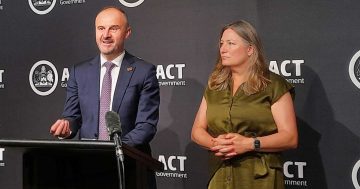
Opposition Deputy Leader Jeremy Hanson (second from left) with grieving parents at the Assembly: Blake Corney’s father, Andrew, left, Lachlan Seary’s mother, Janice and Matthew McLuckie’s father, Tom. Photo: Lottie Twyford.
Chief Minister Andrew Barr got it wrong in the Legislative Assembly last week and he knows it.
His mistake was not to acknowledge the grieving parents of young drivers killed in road accidents while speaking during a debate on a no-confidence motion moved against Attorney-General Shane Rattenbury.
Mr Barr failed to turn and face the parents in the public gallery as he addressed the speaker.
It was poor optics, infuriated the parents who felt insulted and reinforced Opposition arguments that Mr Barr is arrogant, out of touch and lacks empathy.
His immediate response was to defend his actions as part of Assembly protocol, but the next day he apologised unreservedly.
Perhaps his advisors and colleagues had a word. Or perhaps he reflected on the situation himself.
Either way, it was a win for the Opposition, which appears to be focusing on the community impacts of government policy, whether that be at the Canberra Hospital or on ACT roads.
That is bearing much better fruit than previous lines of attack.
Emotion can be a powerful weapon and there is enormous community sympathy for the likes of Tom McLuckie who lost his son Matthew in a head-on smash on Hindmarsh Drive in May and is leading the charge against current bail and sentencing practices for dangerous driving offences.
The no-confidence motion came after the tabling of Mr McLuckie’s petitions demanding a review of the performance of the ACT judiciary in regards to sentencing, a review of the process of appointments to the judiciary, and sentencing guidelines for grievous and purposefully reckless motor vehicle crimes and addressing recidivism.
The government opposes any review and Mr Rattenbury’s new advisory panel has failed to mollify Mr McLuckie or the Opposition.
Mr Barr acknowledged he had irreconcilable differences with the petitions’ goals, including an in-principle objection to mandatory sentencing and the US-style appointment of judicial officers.
Deputy Leader Jeremy Hanson wanted Mr Rattenbury’s head, but that was not going to happen, and nor should it.
Emotion aside, the Liberals need to be careful not to draw from the well too often. The government is correct to respect the independence of the judiciary and the appeals system and not resort to a law and order approach obliging tougher or mandatory sentences and restrictions on bail applications.
That doesn’t mean not considering changes to penalties, from fines to licence bans to sentences to vehicle confiscation, or voicing an opinion on certain sentencing and bail outcomes that may not match community expectations.
The judiciary may be independent but it is not unaccountable.
Mr Rattenbury has shown he is open to this by establishing a law reform and sentencing advisory council so Territory laws remain current and relevant.
But the government is right not to tie the hands of the judiciary and lose the discretion so important in the administration of justice.
The Assembly committee’s inquiry into dangerous driving should provide a wealth of opinion, information and advice for the government to consider beyond punitive approaches, which can have limited effectiveness.
Better driver training, road safety education, including showing young people the horrific consequences of poor and dangerous driving, and greater police presence are all in the mix.
Unfortunately, separating youth and risk is not an easy thing to do.
What Mr Barr can do is not dismiss the Opposition out of hand, especially when there is strong community support, but better articulate the government’s position and show those involved the respect they deserve.
Otherwise, the claims that he has been in charge too long and is out of touch will hit home.





















